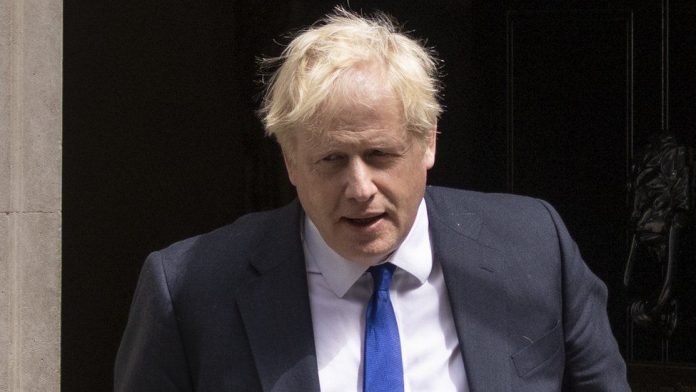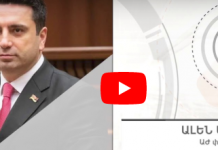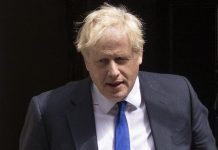Boris Johnson is fighting to save his premiership, amid a mass walk-out of ministers and growing Tory revolt.
At Prime Minister’s Questions he said he had a “colossal mandate” from the 2019 election and would “keep going”.
But a slew of Tories are continuing to quit government or party positions, with backbenchers also withdrawing their support.
Tory party bosses are due to meet at 16.00 BST, as questions over the PM’s future continue to swirl.
Mr Johnson faces a threat from Conservative rebels who want to change party rules to allow another no-confidence vote in him.
He survived such a vote last month, and under the rules as they currently stand he would be immune from another challenge for a year.
Before that, he will face further leadership questions as he makes a scheduled appearance before the Liaison Committee of senior MPs.
Mr Johnson’s premiership has been plunged into crisis following the dramatic resignations of Chancellor Rishi Sunak and Health Secretary Sajid Javid.
They quit within minutes of each other on Tuesday, following a row over Mr Johnson’s decision to appoint Chris Pincher deputy chief whip earlier this year.
Their departures have triggered a wave of further resignations, with a number of ministers going. Kemi Badenoch, Alex Burghart, Neil O’Brien, Julia Lopez, Alex Burghart, Mims Davies and Lee Rowley are among the latest departures.
A senior ally of the prime minister told the BBC: “It’s now a question of how he exits,” adding the situation was “not sustainable”.
‘Nodding dogs’
At PMQs, Labour leader Sir Keir Starmer said the Conservatives had become a “corrupted party defending the indefensible”.
He took aim at ministers who have resigned in recent days, saying their decision not to quit before now showed they lacked a “shred of integrity”.
And he rounded on those who have stayed in post, mocking them as a “Z list cast of nodding dogs”, keeping the PM in power.
He added they were “only in office because no-one else is prepared to debase themselves any longer”, calling them the “charge of the lightweight brigade”.
Tory backbencher Gary Sambrook accused the PM of blaming other people for his mistakes and was applauded after calling on him to resign.
Fellow backbencher David Davis, who dramatically called on Mr Johnson to step down in January, repeated his plea for him to quit before “it becomes impossible for government to do its job”.
But Mr Johnson defied calls for him to go, adding he would “continue to deliver on the mandate I was given”.
“The job of a prime minister in difficult circumstances, when he’s been handed a colossal mandate, is to keep going – and that’s what I’m going to do.”

Sometimes politics is subtle – and then there are days like today.
Sitting in the Press Gallery, watching Prime Minister’s Questions this lunchtime, you could feel, hear and smell Boris Johnson’s authority draining away.
It was in the faces and demeanour of Conservative MPs, as his backbenchers sat in near silence, with all the noise coming from the opposition benches.
It was Mr Johnson’s toughest PMQs he’s faced since the general election.
And it’s only lunchtime.

In a resignation statement after PMQs, Mr Javid said “treading the tightrope between loyalty and integrity” had become “impossible in recent months”.
He added: “At some point we have to conclude that enough is enough. I believe that point is now.”
Mr Johnson has admitted it was a “bad mistake” to appoint Mr Pincher, despite being aware of misconduct allegations against him.
The row over his appointment comes after the PM’s relations with his backbenchers have been damaged by the Partygate scandal and unhappiness over tax rises.
Several key cabinet ministers, including foreign secretary and potential leadership challenger Liz Truss, have rallied round the prime minister.
However, rebel Tories want to use an upcoming vote to the backbench 1922 committee to scrap the year-long gap between contests, making it possible he could face another challenge later this summer.

How could Boris Johnson go?
If party bosses change the one-year rule on leadership challenges, rebel Tory MPs could try again to oust him later this summer, or in the autumn.
If Mr Johnson lost a vote of no confidence in Parliament, he would have to resign or call an election.
Otherwise, he would have to resign himself – possibly in the face of cabinet pressure, like Margaret Thatcher – or after a fresh wave of ministerial resignations.





















